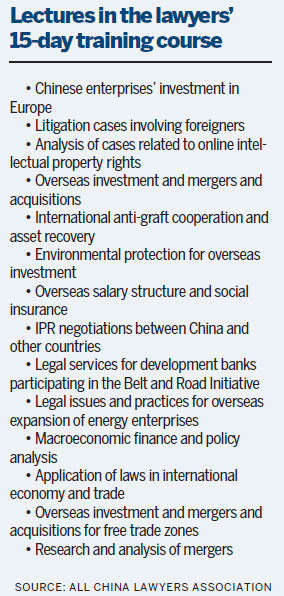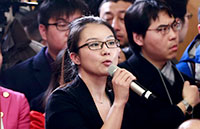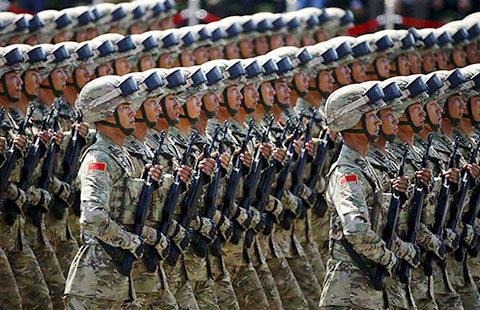Courting an international profile
By Zhang Yan (China Daily) Updated: 2015-12-18 08:29Plugging the gap
According to the lawyers association, more than 270,000 lawyers work in China's 20,000 law firms, but only 30,000 of them specialize in international law.

Zhou, from the Ministry of Justice, said the Ministry of Finance and the Ministry of Justice have acted to plug the gap by investing 4 million yuan every year since 2013 to support the ACLA's training programs.
In addition, local lawyers' associations have established a database of promising lawyers to evaluate their educational backgrounds, work performance, practical experience, professional training and proficiency in English, he said.
"The best are invited to attend special two-week practical training courses offered by the ministry. A select number are then selected to work in institutions and large legal firms in the US and Europe to deepen their knowledge of international law and improve their communication skills," he added.
In August last year, the association held its second annual training session, during which 102 lawyers undertook a 15-day course in Beijing, focusing on case studies and simulated court sessions.
After the course, the trainees took a number of exams, which led to 30 of them being chosen to attend law colleges overseas or to work at large legal firms in Europe, he said.
"I gained a great deal of experience during the training," said Yang Chen, a senior lawyer at the Beijing Jincheng Tongda law firm who was selected for a six-week stint with law firms in Spain and Belgium.
"The priority is to gain more practical experience, learn how to manage legal risks and improve training programs and the quality of our services," he said.
Zhou, of the All China Lawyers Association, said opportunities such as these will promote the development of the domestic legal sector and improve lawyers' abilities to undertake cross-border litigation.
Ariel Ye, an international law specialist at the Beijing office of the global law firm King and Wood Mallesons, said the initiative will help to strengthen Chinese lawyers' abilities and challenge the dominance currently enjoyed by foreign lawyers.
"But we should also understand our own shortcomings," she said. "We must emphasize training for talented professionals and encourage them to actively participate in international forums, to enable them to communicate and share their experiences with foreign competitors, and to improve their practical abilities."
According to Wang Junfeng of the All China Lawyers Association, greater government participation will be essential if the sector is to make a mark internationally.
"The key is to draw the attention of the central authorities, and ask them to be more aware of the important role that lawyers play. But we should also gain more experience and improve our business standards and levels of proficiency so we can narrow the gap with our competitors from the US and Europe," he said.
- China to sink billions into new airports
- More high-speed services to be added
- Lunar mission moves a step closer
- Southwest China city tries to help make smog-free meat
- Watchdog issues rare comment on execs' porn prosecution
- Tourism revenue in Tibet's Lhasa to double by 2020
- China overfulfills affordable housing target
- Bumper crops fill reserves
- Awards honor scientists' contributions
- Chinese police seize 470 suspects in transnational telecom fraud







